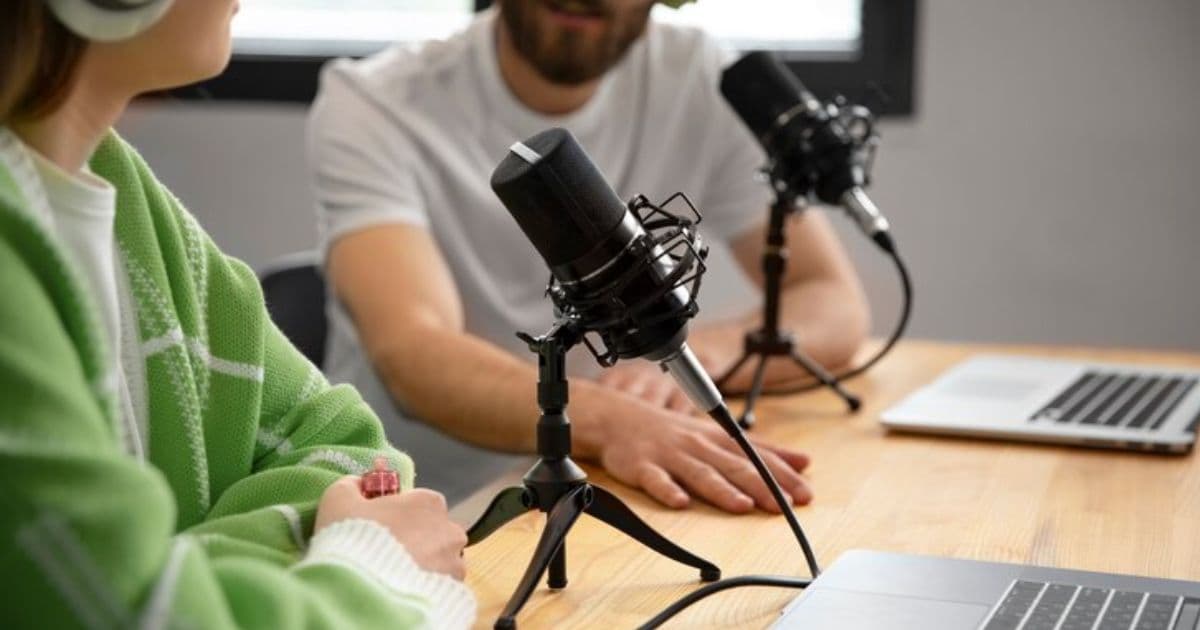Monetizing Podcasts: How Journalists Can Earn from Audio Content
In recent years, podcasts have become an essential part of the media landscape, especially in the context of modern journalism. With the development of digital technologies and changing consumer preferences, podcasts have gained popularity among listeners, and their creation has become accessible not only to large media platforms but also to independent journalists. For many, it is not only a way to deliver information to an audience but also an opportunity to earn money. In this article, we will explore various methods of monetizing podcasts that journalists can use to generate income from audio content.
Why Monetize Podcasts?
Podcasts in the Czech Republic, as in many other countries, are becoming not only a channel for disseminating information but also a profitable source of income. This is especially relevant for journalists who seek to expand their audience while maintaining the sustainability of their projects. Unlike traditional media, where monetization is often limited to subscriptions or advertising, podcasts offer more opportunities to use diverse revenue-generation methods, ranging from direct advertising to subscription models.
Advertising as the Primary Source of Income
One of the most popular and obvious ways to monetize podcasts is through advertising. Journalists can attract advertisers who are interested in having their products or services mentioned on a platform with an established audience. However, in order to attract advertisers, it is necessary to create quality content and maintain a high level of engagement. The more listeners a podcaster has and the more targeted the audience, the easier it is to attract advertisers, which directly increases revenue.
Ad spots can be placed at the beginning, middle, or end of a podcast. This type of advertising can range from simple commercial breaks to native ads, where journalists integrate the promoted product or service into the content itself, making it less intrusive for listeners. This approach allows the audience not only to hear about a product but also to understand how it can be useful within the context of the discussed topic.
Sponsorship Agreements
Another important source of income comes from sponsorship agreements. Unlike regular advertising, sponsorships imply a longer-term collaboration, providing a more stable financial flow for the journalist. Sponsors can fund the podcast over several episodes or seasons, which allows content creators to focus on quality production without constantly searching for new advertisers.
Sponsorship agreements can be made with local businesses, large companies, or even non-profit organizations. It is essential for the sponsor to align with the podcast’s theme, as this increases audience trust and enhances the effectiveness of the partnership.
Subscriptions and Crowdfunding
Another option for monetization is through subscriptions or crowdfunding platforms. There are specialized platforms like Patreon, which allow content creators to earn money from subscribers who are willing to support their projects in exchange for exclusive content or other perks.
The subscription model works well for journalists who already have a dedicated audience willing to pay for access to additional materials or unique episodes. Subscribers can gain access to extra content, such as bonus episodes, behind-the-scenes recordings, and the ability to influence the selection of future topics for episodes.
Crowdfunding platforms, such as Kickstarter or Česká crowdfundingová platforma, allow journalists to run campaigns to raise funds for developing new seasons or episodes. These platforms can be beneficial for journalists who want to expand their activities but do not have the budget for expensive production.
Products and Merchandising
Many journalists who host podcasts start selling products related to their content. This can include branded merchandise such as T-shirts, mugs, posters, or even digital products like books, articles, or special audio files. Creating products or additional materials based on the podcast allows journalists not only to earn extra income but also to strengthen their connection with the audience by giving fans the opportunity to support the project in a more personalized way.
Selling merchandise is easiest through the podcast’s website or through partner stores, but this requires building a strong and loyal audience that will be ready to support the project.
Paid Interviews and Exclusive Recordings
Another interesting strategy is selling exclusive interviews or recordings that are not available to the public. Many listeners are willing to pay for unique content that is unavailable to a wider audience. Journalists can charge for access to exclusive episodes featuring well-known personalities, experts, or unique stories, making the content even more attractive to the audience.
Additionally, such exclusive episodes can be part of a premium subscription or available for purchase on a specific platform.
Conclusion
Monetizing podcasts in the Czech Republic is a multifaceted process that depends on the content’s theme, audience size, and level of engagement. Every journalist can choose the most suitable monetization methods, combining advertising, subscriptions, crowdfunding, and exclusive content sales. It is important to remember that successful monetization requires time, effort, and continuous interaction with the audience, but as podcasting grows, these efforts start to pay off, ensuring not only financial stability but also the opportunity to create quality and in-demand content.


